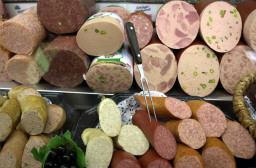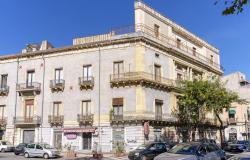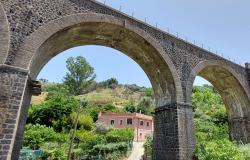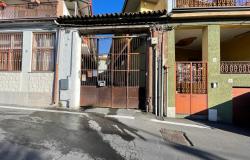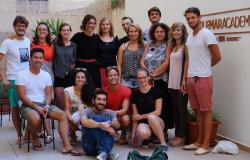A famed Sicilian salame dating back to Norman times has kept Italy top of the European quality-food charts.
The European Commission on Wednesday gave the green light for the inclusion of Salame Sant'Angelo on the list of products the European Union recognises and protects for their qualities and origin.
''We are honoured to be named on the EU guarantee list, a laurel our salame deserves,'' said a spokesman for the consortium that guards the sausage's secrets.
Unusually, the salame made in the small town of S. Angelo Di Brolo in the province of Messina earned both of the EU's top food laurels: a Protected Designation of Origin (PDO) seal and a Protected Geographical Indication (PGI) label.
The salame, created when Norman Count Ruggero d'Altavilla abolished a Muslim ban on pork in the 9th century, joins scores of other Italian products whose authenticity is protected against imitation.
The Sicilian delicacy, which is seasoned in centuries old airing rooms for up to 100 days, earned Italy a record 166th and 167th quality seal from the EU.
It joined the 165th member of the roll of honour, a salame from the northern Italian city of Cremona, which recently received recognition.
A quarter of the EU's quality products are Italian, the most of any member state.
ITALY PULLING AWAY FROM FRANCE.
France is second with 20% but Italy has been steadily pulling away over the last few months.
The Cremona salame earned a PGI, the EU's second-highest honour.
Two other northern Italian products, a prized sweet chestnut from Cuneo in Piedmont and a white asparagus native to the Bassano area north of Venice, preceded the salmon into the roll of honour.
The 'Castagna di Cuneo' chestnut won a PGI label while the 'Asparago Bianco di Bassano' earned the EU's highest seal of approval, the PDO.
The three new notches on Italy's food-quality belt come just weeks after another pair, rice from Biella north of Turin and an orange from Puglia's Gargano peninsula, were recognised as special products.
The 'Riso di Baraggia Biellese' got a PDO while the 'Arancia del Gargano' picked up a PGI.
The seals of approval are aimed at protecting genuine products from inferior clones.
The EU now recognises the quality of some 800 food products. These carry not only the PDO or PGI labels but also the Traditional Speciality Guaranteed (TSG) label.
Recent Italian additions to the list include hazelnuts and chestnuts from Viterbo north of Rome, the classic 'Ascoli olive' - turned into a delicacy au gratin in the Marche city - and crisp apples from the northern Val di Non region.
Three other regional specialities, Rieti chestnuts, Tuscia olive oil from northern Lazio and Genoese basil - a key ingredient in Genoa's world-famous pesto sauce - also joined Italy's proud list.
Past winners of prize badges have included Rome's ricotta cheese, saffrons from l'Aquila in Abruzzo and San Gimignano in Tuscany, fatty bacon (lardo) from Colonnata near Florence, and honey from the Lunigiana region of northern Tuscany with a PDO label - the first Italian honey to win such recognition.
Other recent Italian gains have been five top olive oils, bergamot flavouring, Roman suckling lamb or 'abbacchio' and goose salame from Mortara near Pavia.
Quality certificates have also been awarded to prickly pears grown on Mt Etna and the tiny but tasty Pachino tomato from another part of Sicily.
Buffalo mozzarella from the region around Naples has also earned protection.
A raft of products are still lined up for EU seals of approval, including artichokes from the Ancient Greek site at Paestum south of Naples.
